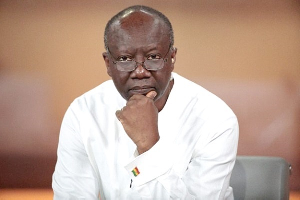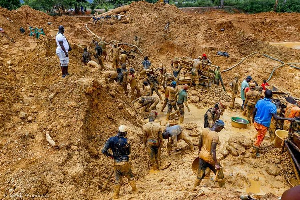The Southern African Development Community (SADC) needs to work on combating the threat of terrorism before it becomes a long term security threat.
This was expressed by Minister of International Affairs and Cooperation, Dr Lemogang Kwape while giving the opening remarks to the Extraordinary Meeting of the SADC Ministerial Committee of the Organ on Politics, Defence and Security in Gaborone on November 26.
Speaking in his capacity as the chairperson of the SADC Ministerial Committee, Dr Kwape said the Southern African region had done a lot towards the consolidation of democratic culture, but the emerging threat of terrorism needed to be nipped in the bud before it spreads across the region.
In this regard, Dr Kwape said SADC needs to work on developing early warning systems and having a robust regional response to prevent any forces that may threaten the stability of the region.
"Working together in the spirit of solidarity and togetherness, we will pre-empty any latent and active forces within and without, that may threaten the peace and tranquility that have become synonymous with our region," Dr Kwape said.
The 40th SADC Summit of Heads of State and Government held virtually in August 17 had directed the Troika of the Ministerial Committee of the organ to deliberate with the United Nations Secretary General on reconfiguring the Force Intervention Brigade involved in the Democratic Republic of Congo (DRC).
"Consultations have taken place between SADC and the UN, both at political and military levels. Updates from our senior officials will provide updates on these consultations and recommendations," Dr Kwape said.
Welcoming the ministers, SADC Executive Secretary, Dr Stergomena Tax said terrorism had emerged in parts of DRC and needed a concerted regional response.
She said the region needed a Centre for Counter Terrorism that would be a resourced dedicated service to provide long term security response to the emerging challenge.
Among ministers who attended were Dr Naledi Pandor, incoming chair of the ministerial organ and Minister of International Relations and Cooperation of South Africa and her Zimbabwean counterpart, the outgoing regional chair, Mr Sibusiso Moyo.
Ministers and high-ranking officials from eSwatini, Namibia, Mozambique, Madagascar and Malawi were also present.
The Ministerial organ meeting and that of senior officials preceded November 27 Extraordinary Organ Troika Summit to be attended by regional heads of states, hosted by President Dr Mokgweetsi Masisi in his capacity as the chairperson.
Africa News of Friday, 16 April 2021
Source: dailynews.gov.bw













